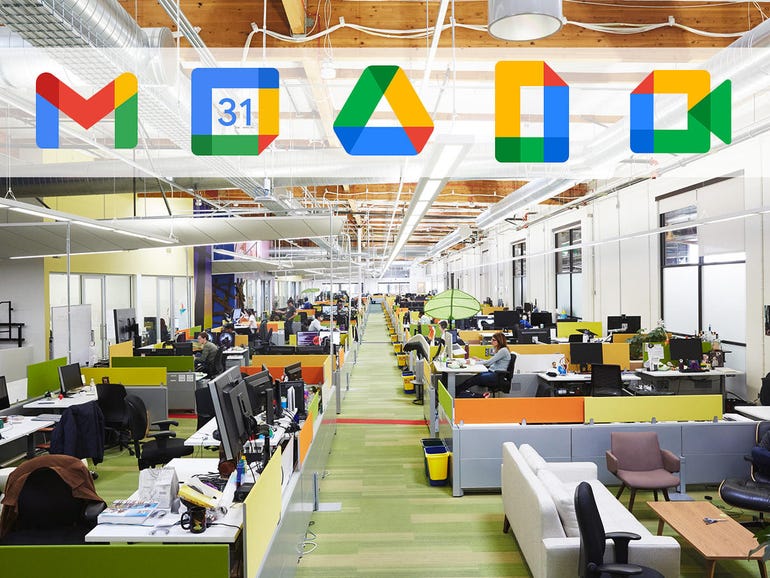How Google Is Continuing To Chip Away At Microsoft's Productivity Dominance

Recently, I wrote about how Google and Facebook have reacted to recent threats such as the Australian government requiring negotiations with media companies and Apple requiring app makers to have consumers opt in to tracking.
The paths of the digital advertising giants may just be beginning to diverge. While Google will remain dependent on advertising revenue for years to come, the company's levelheaded approach regarding threats to that business may be indicative of a broader shift that could have the future of the company looking a lot more like Microsoft than Facebook.
As we were recently reminded when Microsoft executive Brad Smith testified regarding Google's dominance, the two companies have a long-running rivalry. It has included Microsoft chasing Google in online search and mobile phone operating systems and Google chasing Microsoft in cloud computing, productivity suites, and PC operating systems. The startup display of the Surface Duo, which shows the Microsoft logo on one screen and the Android logo on the other, is a great metaphor for the companies' relationship -- separated by a divide designed to bend but not break.
The Surface Duo also reminds us that, overall, Google has made more progress muscling in on Microsoft's turf than vice versa and has been willing to abandon purism to do so. Google's original beachhead was the lightweight web-based office suite Google Docs, which has now grown into Google Workspace. Even today, Google's productivity apps can't do many things that Microsoft Office can do. But Google has slowly if sometimes awkwardly been moving to counter the broader Microsoft productivity story piece by piece.
Google Keep, a second-class member of Google's work suite, is simplistic compared to Evernote, which is itself simplistic compared to Microsoft's OneNote. While notorious for its many communication app shuffles over the years, Google seems to be finally settling into answering Teams with Google Meet and Google Chat, There's also Google Tables, a little-known side-project from the company's internal Area 120 incubator that is a response to Microsoft Lists.
In 2013, when Microsoft went after Google with a Scroogled campaign that warned businesses about Google's collection of data via Gmail, Google abandoned the practice. And while Google launched Chrome OS as a kind of anti-Windows bereft of native apps, today's Chromebooks stray far from the web to include Android applications, Linux support, and even Windows apps via virtualization.
Microsoft seems poised to strike back with Windows 10X, which looks like it could provide a compelling alternative, but Google long ago lined up the Big Five laptop makers to make Chromebooks. These devices still undercut Windows laptops on price at the low end (thanks in part to support for affordable Mediatek processors); their popularity during the pandemic led to a surge that outpaced MacBooks, even as Apple's laptops enjoyed strong sales, Chromebooks have also been moving upstream with Intel (although not as far as Google's showcase Pixelbooks once set the bar).
Most importantly in terms of future potential competition with Microsoft, Google has quietly built up formidable user management capabilities in Workspace. These were on display during the pandemic as school boards -- where mining private information for ad purposes is a deal-breaker -- had to quickly and flexibly extend different access levels to thousands of administrators, faculty, and students around the globe. As impressive as that may have been, it is likely prelude to a stronger corporate offensive versus Microsoft we can expect as the economy continues its recovery and companies consider lighter-weight tools with a focus on working from anywhere but with the right degree of access for everyone.
PREVIOUS AND RELATED COVERAGE
Facebook vs. Google: Similar models, diverging perspectives
The two kings of internet advertising have employed different strategies in addressing recent threats, moves that indicate a growing shift in business focuses.
Microsoft, Google trade barbs during congressional hearing on news industry
Microsoft says Google has gobbled up ad dollars that once supported journalism. Google says Microsoft's criticism is opportunistic.
Google adds new productivity tools as companies look to hybrid work
The features come as businesses plan for a post-pandemic world.
How Fintech Is Revolutionizing Traditional Banking
How fintech is revolutionizing traditional banking is a topic that is garnering positive and immense discourse within th... Read more
Blockchain And Its Impact On Fintech Industry
Blockchain and its impact on Fintech Industry has become a hot topic in the current digital era. The amalgamation of blo... Read more
The Rise Of Fintech In The Digital Era
In the heart of the digital revolution, we've observed a term termed as "fintech" creating a substantial and transformat... Read more
Role Of Fintech In Transforming Retail Banking
The role of fintech in transforming retail banking is producing significant changes in the financial services industry. ... Read more
Fintech Innovations In Asset Management
Financial technology, or FinTech, refers to the blending of financial services with technology. The importance of FinTec... Read more
Exploring The Future Of Accounting Software: Unveiling The Power Of AI
The revolutionary ignition sparked by artificial intelligence (AI) cannot be understated in contemporary business ecosys... Read more

